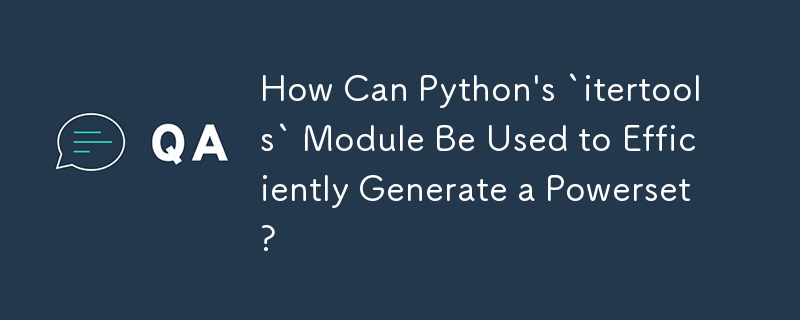

Powerset Generation: A Detailed Explanation
Given a set S, the powerset of S refers to the set of all subsets of S. For instance, for the set {0, 1, 2, 3}, its powerset includes the empty set, subsets with single elements, subsets with two elements, subsets with three elements, and the original set itself.
Solution: Implementing Powerset Using Python's itertools Module
Python's itertools module provides a straightforward recipe for generating a powerset:
from itertools import chain, combinations
def powerset(iterable):
"powerset([1,2,3]) --> () (1,) (2,) (3,) (1,2) (1,3) (2,3) (1,2,3)"
s = list(iterable)
return chain.from_iterable(combinations(s, r) for r in range(len(s)+1))This function takes an iterable as input and generates all possible combinations of its elements. The combinations function generates subsets of various sizes, ranging from an empty subset to a subset with all elements.
Example Usage:
To illustrate the function's operation, let's consider the set "abcd":
>>> list(powerset("abcd"))
[(), ('a',), ('b',), ('c',), ('d',), ('a', 'b'), ('a', 'c'), ('a', 'd'), ('b', 'c'), ('b', 'd'), ('c', 'd'), ('a', 'b', 'c'), ('a', 'b', 'd'), ('a', 'c', 'd'), ('b', 'c', 'd'), ('a', 'b', 'c', 'd')]By default, the function also includes an empty tuple, which can be omitted by adjusting the range statement to range(1, len(s) 1).
The above is the detailed content of How Can Python's `itertools` Module Be Used to Efficiently Generate a Powerset?. For more information, please follow other related articles on the PHP Chinese website!




